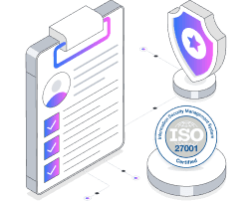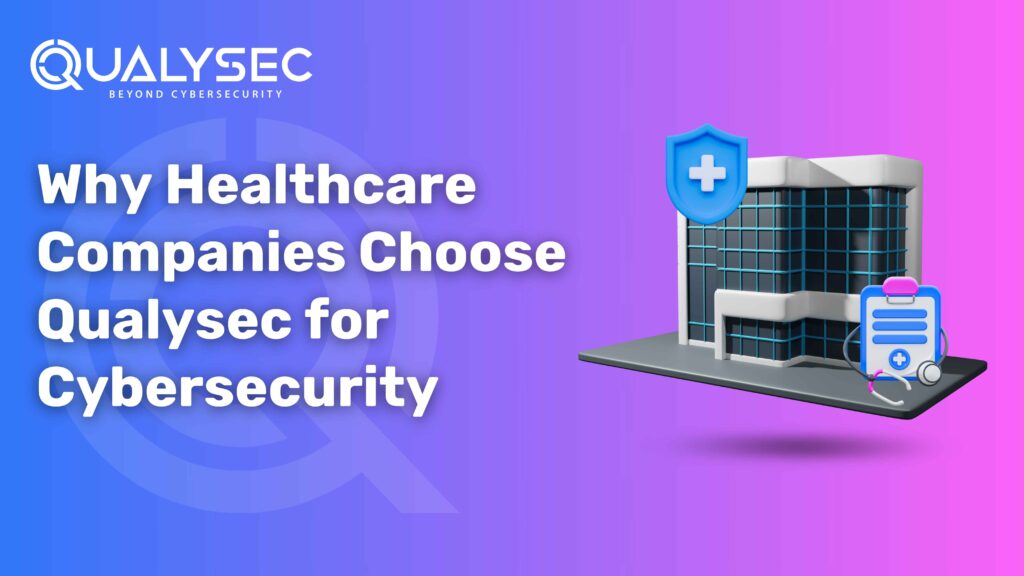Why Healthcare Companies Choose Qualysec for Cybersecurity
The healthcare industry is one of the most targeted sectors when it comes to cyberattacks. From hospitals to telemedicine platforms, organizations are handling enormous volumes of sensitive data, including patient health records, insurance details, and billing information. A breach in this sensitive ecosystem can expose institutions to significant financial, legal, and reputational damage. To counter these risks, penetration testing has become a critical step in cybersecurity for healthcare companies seeking to secure their systems. Amidst numerous healthcare cybersecurity companies, Qualysec has emerged as the trusted name in penetration testing for healthcare organizations. Below, we’ll explore why Qualysec is the trusted choice and the value it brings to healthcare businesses. Healthcare Security Challenges and the Role of Penetration Testing Cybersecurity challenges in healthcare organizations range from external attacks to internal lapses. Healthcare companies hold a treasure trove of sensitive information, from patient records to proprietary research data, making them a prime target for cyberattacks. Below, we’ll explore the key security challenges and why penetration testing is critical in addressing these vulnerabilities. 1. Data Breaches One of the most serious threats to healthcare organizations is data breaches. A single breach can expose thousands of patient records, leaving the organization vulnerable to HIPAA violations, financial penalties, and lawsuits. For example, in 2023, a data breach affected a large U.S. healthcare provider, compromising the medical records of over 25,000 patients. The exposed data included names, Social Security numbers, and medical histories, leading to a class-action lawsuit. Penetration testing identifies weak points in your system by simulating real-world attacks. By discovering vulnerabilities before attackers do, organizations can secure their systems and reduce the risk of unauthorized access to sensitive data. This aligns with best practices for healthcare cybersecurity compliance and preventing data breaches in healthcare facilities. 2. Phishing Attacks Healthcare staff are often prime targets for phishing emails, which aim to steal login credentials or install malicious software. These attacks exploit human error, posing a critical risk to healthcare operations. Qualysec’s penetration testing includes simulated phishing campaigns to evaluate how employees respond to suspicious emails. Organizations can use this insight to improve their security awareness training and mitigate the risk of phishing attacks, one of the most pressing cybersecurity challenges in healthcare organizations. 3. Ransomware Ransomware attacks are increasingly common in the healthcare sector. These attacks encrypt critical patient records and demand a ransom for their release, often crippling healthcare operations and putting lives at risk. For example, in 2021, a ransomware attack on a German hospital caused delays in patient care, contributing to a tragic patient death. Qualysec assesses an organization’s defenses against ransomware by identifying vulnerable endpoints and recommending actionable fixes. This proactive strategy helps counter the impact of ransomware on healthcare organizations and ensures better preparedness. 4. Connected IoT Devices From heart monitors to diagnostic imaging machines, IoT devices are revolutionizing the healthcare industry. However, these connected tools can also serve as entry points for attackers if they aren’t adequately secured. Qualysec specializes in testing IoT devices to ensure their security. By thoroughly evaluating device firmware, communication protocols, and authentication systems, Qualysec ensures that IoT equipment is secure and safe for patient care, contributing to cybersecurity strategies for protecting medical devices. 5. Third-Party Vulnerabilities Healthcare organizations often rely on third-party vendors for software, billing systems, and other services. Unfortunately, these external platforms can introduce security vulnerabilities that jeopardize patient data. Qualysec’s penetration testing includes an evaluation of third-party systems and integrations. By identifying and addressing vulnerabilities within third-party platforms, Qualysec helps safeguard your entire digital ecosystem, managing the impact of third-party vendors on healthcare security. Talk to our Cybersecurity Expert to discuss your specific needs and how we can help your business. Schedule a Call The Importance of Penetration Testing in Healthcare Penetration testing, also known as pen testing, is a proactive approach to testing the security of your systems. Instead of waiting for malicious actors to exploit vulnerabilities, penetration testing simulates real-world cyberattacks to identify weak points in your defenses and resolve them before damage occurs. Why Penetration Testing is Non-Negotiable for Healthcare The importance of cybersecurity in healthcare data protection cannot be overstated. The healthcare sector operates in one of the most highly regulated environments, and for good reason. Patient privacy is critical, and cybersecurity for healthcare providers is subject to strict compliance frameworks, such as HIPAA (Health Insurance Portability and Accountability Act), GDPR (General Data Protection Regulation), and HITRUST standards. Penetration testing goes far beyond automated scans. It combines advanced tools and human intelligence to uncover vulnerabilities that an automated system might overlook. For top healthcare cybersecurity companies, the benefits of penetration testing are clear: 1. Identifying Weak Points in Systems Penetration testing provides a comprehensive assessment of your systems, networks, and applications. It helps protect patient data in healthcare cyberattacks by exposing hidden flaws. 2. Testing the Effectiveness of Existing Defenses Even the most advanced cybersecurity systems need regular testing. Penetration testing evaluates the robustness of your defenses by simulating real-world tactics and aligns with healthcare cybersecurity frameworks and guidelines. 3. Preventing Non-Compliance Penalties Healthcare organizations must comply with various security regulations. Regular testing supports HIPAA compliance e and cybersecurity measures, helping organizations avoid hefty penalties. 4. Building Trust with Patients and Partners Patients expect their personal health information (PHI) to be handled securely. A single data breach can shatter this trust. Penetration testing demonstrates your commitment to protecting patient data, which in turn strengthens your credibility. For healthcare companies, penetration testing isn’t just a box-ticking exercise for compliance; it’s an integral part of ensuring both operational and data security. Why Healthcare Companies Trust Qualysec Beyond compliance, Qualysec brings a wealth of benefits tailored to the healthcare industry. Here’s a closer look at why cybersecurity for healthcare providers increasingly involves partnering with Qualysec: 1. Expertise in Healthcare Security Qualysec understands the nuances of healthcare systems’ cybersecurity strategies. Our teams work to uncover both traditional and emerging vulnerabilities across network infrastructures, medical devices, electronic health record (EHR) systems, and patient portals. 2. Customizable Testing Solutions integrating AI




